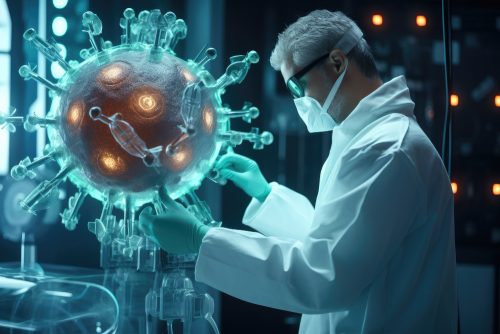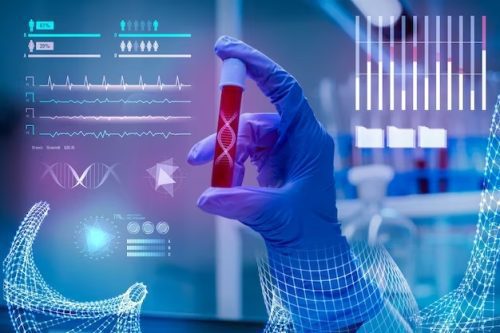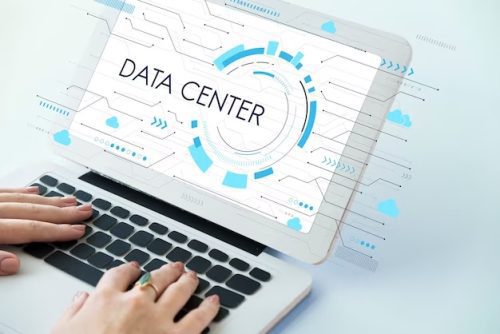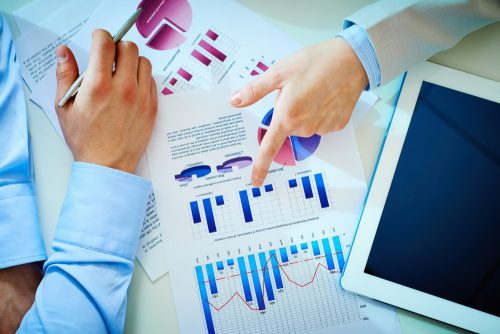Subscribe to Newsletter
Subscribe to Newsletter
Subscribe to Newsletter
Subscribe to Newsletter
Subscribe to Newsletter
Subscribe to Newsletter
Subscribe to Newsletter
Subscribe to Newsletter
Subscribe to Newsletter
Subscribe to Newsletter
Subscribe to Newsletter
Subscribe to Newsletter
Subscribe to Newsletter
Subscribe to Newsletter
Subscribe to Newsletter
Subscribe to Newsletter
Subscribe to Newsletter
Subscribe to Newsletter
Subscribe to Newsletter
Subscribe to Newsletter
Subscribe to Newsletter
Subscribe to Newsletter
Subscribe to Newsletter
Subscribe to Newsletter
Subscribe to Newsletter
Subscribe to Newsletter
Subscribe to Newsletter
Subscribe to Newsletter
Subscribe to Newsletter
Subscribe to Newsletter
Subscribe to Newsletter
Subscribe to Newsletter
Subscribe to Newsletter
Subscribe to Newsletter
Subscribe to Newsletter
Subscribe to Newsletter
Subscribe to Newsletter
Subscribe to Newsletter
Subscribe to Newsletter
Subscribe to Newsletter
Subscribe to Newsletter
Subscribe to Newsletter
Subscribe to Newsletter
Subscribe to Newsletter
Subscribe to Newsletter
Subscribe to Newsletter
Subscribe to Newsletter
Subscribe to Newsletter
Subscribe to Newsletter
Subscribe to Newsletter
Subscribe to Newsletter
Subscribe to Newsletter
Subscribe to Newsletter
Subscribe to Newsletter
Subscribe to Newsletter
Subscribe to Newsletter
Subscribe to Newsletter
Subscribe to Newsletter
Subscribe to Newsletter
Subscribe to Newsletter
Subscribe to Newsletter
Subscribe to Newsletter
Subscribe to Newsletter
Subscribe to Newsletter
Subscribe to Newsletter
Subscribe to Newsletter
Subscribe to Newsletter
Subscribe to Newsletter
Subscribe to Newsletter
Subscribe to Newsletter
Subscribe to Newsletter
Subscribe to Newsletter
Subscribe to Newsletter
Subscribe to Newsletter
Subscribe to Newsletter
Subscribe to Newsletter
Subscribe to Newsletter
Subscribe to Newsletter
Subscribe to Newsletter
Subscribe to Newsletter
Subscribe to Newsletter
Subscribe to Newsletter
Subscribe to Newsletter
Subscribe to Newsletter
Subscribe to Newsletter
Subscribe to Newsletter
Subscribe to Newsletter
Subscribe to Newsletter
Subscribe to Newsletter
Subscribe to Newsletter
Subscribe to Newsletter
Subscribe to Newsletter
Subscribe to Newsletter
Subscribe to Newsletter
Subscribe to Newsletter
Subscribe to Newsletter
Subscribe to Newsletter
Subscribe to Newsletter
Subscribe to Newsletter
Subscribe to Newsletter
Subscribe to Newsletter
Subscribe to Newsletter
Subscribe to Newsletter
Subscribe to Newsletter
Subscribe to Newsletter
Subscribe to Newsletter
Subscribe to Newsletter
Subscribe to Newsletter
Subscribe to Newsletter
Subscribe to Newsletter
Subscribe to Newsletter
Subscribe to Newsletter
Subscribe to Newsletter
Subscribe to Newsletter
Subscribe to Newsletter
Subscribe to Newsletter
Subscribe to Newsletter
Subscribe to Newsletter
Subscribe to Newsletter
Subscribe to Newsletter
Subscribe to Newsletter
Subscribe to Newsletter
Subscribe to Newsletter
Subscribe to Newsletter
Subscribe to Newsletter
Subscribe to Newsletter
Subscribe to Newsletter
Subscribe to Newsletter
Subscribe to Newsletter
Subscribe to Newsletter
Subscribe to Newsletter
Subscribe to Newsletter
Subscribe to Newsletter
Subscribe to Newsletter
Subscribe to Newsletter
Subscribe to Newsletter
Subscribe to Newsletter
Subscribe to Newsletter
Subscribe to Newsletter
Subscribe to Newsletter
Subscribe to Newsletter
Subscribe to Newsletter
Subscribe to Newsletter
Subscribe to Newsletter
Subscribe to Newsletter
Subscribe to Newsletter
Subscribe to Newsletter
Subscribe to Newsletter
Subscribe to Newsletter
Subscribe to Newsletter
Subscribe to Newsletter
Subscribe to Newsletter
Subscribe to Newsletter
Subscribe to Newsletter
Subscribe to Newsletter
Subscribe to Newsletter
Subscribe to Newsletter
Subscribe to Newsletter
Subscribe to Newsletter
Subscribe to Newsletter
Subscribe to Newsletter
Subscribe to Newsletter
Subscribe to Newsletter
Subscribe to Newsletter
Subscribe to Newsletter
Subscribe to Newsletter
Subscribe to Newsletter
Subscribe to Newsletter
Subscribe to Newsletter
Subscribe to Newsletter
Subscribe to Newsletter
Subscribe to Newsletter
Subscribe to Newsletter
Subscribe to Newsletter
Subscribe to Newsletter
Subscribe to Newsletter
Subscribe to Newsletter
Subscribe to Newsletter
Subscribe to Newsletter
Subscribe to Newsletter
Subscribe to Newsletter
Subscribe to Newsletter
Subscribe to Newsletter
Subscribe to Newsletter
Subscribe to Newsletter
Subscribe to Newsletter
Subscribe to Newsletter
Subscribe to Newsletter
Subscribe to Newsletter
Subscribe to Newsletter
Subscribe to Newsletter
Subscribe to Newsletter
Subscribe to Newsletter
Subscribe to Newsletter
Subscribe to Newsletter
Subscribe to Newsletter
Subscribe to Newsletter
Subscribe to Newsletter
Subscribe to Newsletter
Subscribe to Newsletter
Subscribe to Newsletter
Subscribe to Newsletter
Subscribe to Newsletter
Subscribe to Newsletter
Subscribe to Newsletter
Subscribe to Newsletter
Subscribe to Newsletter
Subscribe to Newsletter
Subscribe to Newsletter
Subscribe to Newsletter
Subscribe to Newsletter
Subscribe to Newsletter
Subscribe to Newsletter
Subscribe to Newsletter
Subscribe to Newsletter
Subscribe to Newsletter
Subscribe to Newsletter
Subscribe to Newsletter
Subscribe to Newsletter
Subscribe to Newsletter
Subscribe to Newsletter
Subscribe to Newsletter
Subscribe to Newsletter
Subscribe to Newsletter
Subscribe to Newsletter
Subscribe to Newsletter
Subscribe to Newsletter
Subscribe to Newsletter
Subscribe to Newsletter
Subscribe to Newsletter
Subscribe to Newsletter
Subscribe to Newsletter
Subscribe to Newsletter
Subscribe to Newsletter
Subscribe to Newsletter
Subscribe to Newsletter
Subscribe to Newsletter
Subscribe to Newsletter
Subscribe to Newsletter
Subscribe to Newsletter
Subscribe to Newsletter
Subscribe to Newsletter
Subscribe to Newsletter
Subscribe to Newsletter
Subscribe to Newsletter
Subscribe to Newsletter
Subscribe to Newsletter
Subscribe to Newsletter
Subscribe to Newsletter
Subscribe to Newsletter
Subscribe to Newsletter
Subscribe to Newsletter
Subscribe to Newsletter
Subscribe to Newsletter
Subscribe to Newsletter
Subscribe to Newsletter
Subscribe to Newsletter
Subscribe to Newsletter
Subscribe to Newsletter
Subscribe to Newsletter
Subscribe to Newsletter
Subscribe to Newsletter
Subscribe to Newsletter
Subscribe to Newsletter
Subscribe to Newsletter
Subscribe to Newsletter
Subscribe to Newsletter
Subscribe to Newsletter
Extraction of Rare Earth Metals using Microbes
Harnessing Microbial Power for Sustainable Mining
Online/ e-LMS
Mentor Based
Moderate
1 Month
About
This innovative program focuses on leveraging the power of microbial organisms to revolutionize the extraction process of rare earth metals. By harnessing the natural abilities of microorganisms to interact with and process metals, the program aims to develop novel and environmentally friendly techniques for recovering these essential materials from diverse sources such as ores, industrial waste, and electronic devices. Through interdisciplinary research and collaboration, the program seeks to optimize microbial bioleaching and bioaccumulation processes, design efficient bioreactor systems, and advance the understanding of microbial-metal interactions, with the overarching goal of providing sustainable solutions to meet the increasing demand for rare earth metals while minimizing environmental impact.
Furthermore, this program envisions a transformative shift towards a circular economy model where waste becomes a valuable resource, reducing reliance on conventional mining practices and mitigating environmental degradation. By harnessing microbial bioleaching and bioaccumulation technologies, the program aims to contribute to the development of a more sustainable and resilient materials supply chain. It seeks to unite stakeholders from academia, industry, and government sectors to drive innovation, promote responsible resource management, and pave the way for a greener and more sustainable future in rare earth metal extraction and production.
Aim
The aim of this program is to harness the unique capabilities of microbial organisms to develop efficient and environmentally sustainable methods for extracting rare earth metals from various sources, revolutionizing the supply chain of critical materials essential for modern technologies.
Program Objectives
- Understand the biochemistry and genetics of microbes that are effective in leaching rare earth metals.
- Explore the environmental impacts and benefits of using microbial technology in mining.
- Develop practical skills in designing and implementing bioleaching processes.
- Analyze current case studies and research trends in microbial extraction methods.
Program Structure
1.Introduction of Rare Earth
2.Metals and its Properties
3.Bio-extracting Metals
4.E-waste biorecycling
5.Applications of Rare Earth
6.Project Report Submission/ Article Writing
Participant’s Eligibility
- Educational Background: Many research opportunities in this field require at least a bachelor’s degree in a relevant scientific discipline such as biology, biotechnology, microbiology, environmental science, chemistry, or materials science. Advanced degrees (master’s or Ph.D.) may be preferred for more specialized or leadership roles.
- Research Experience: Prior experience in laboratory research, especially in areas such as microbiology, biochemistry, biotechnology, or materials science, can be beneficial. Experience with techniques such as microbial culturing, molecular biology, analytical chemistry, or materials characterization may be particularly relevant.
- Skills and Expertise: Specific skills and expertise relevant to the research project, such as microbial cultivation and manipulation, molecular biology techniques (e.g., genetic engineering), metal extraction methods, analytical techniques (e.g., spectroscopy, chromatography), and data analysis, may be required or preferred.
- Interest and Motivation: Demonstrated interest in the field of rare earth metal extraction, as well as a clear understanding of the potential applications and implications of the research, can strengthen your eligibility.
- Other Requirements: Depending on the specific project and institution, there may be additional requirements such as language proficiency, computational skills, or regulatory compliance training.
Program Outcomes
By the end of the course, participants will:
- Have a thorough understanding of the mechanisms by which microbes extract rare earth metals.
- Be able to design, optimize, and troubleshoot microbial leaching processes.
- Be aware of the environmental impacts, including advantages and potential risks, of microbial mining.
- Be prepared to apply this knowledge to improve sustainability practices in the mining industry.
Fee Structure
Standard Fee: INR 29,998 USD 640
Discounted Fee: INR 14999 USD 320
We are excited to announce that we now accept payments in over 20 global currencies, in addition to USD. Check out our list to see if your preferred currency is supported. Enjoy the convenience and flexibility of paying in your local currency!
List of CurrenciesBatches
Certificate
Program Assessment
Certification to this program will be based on the evaluation of following assignment (s)/ examinations:
| Exam | Weightage |
|---|---|
| Mid Term Assignments | 50 % |
| Project Report Submission (Includes Mandatory Paper Publication) | 50 % |
To study the printed/online course material, submit and clear, the mid term assignments, project work/research study (in completion of project work/research study, a final report must be submitted) and the online examination, you are allotted a 1-month period. You will be awarded a certificate, only after successful completion/ and clearance of all the aforesaid assignment(s) and examinations.
Program Deliverables
- Access to e-LMS
- Real Time Project for Dissertation
- Project Guidance
- Paper Publication Opportunity
- Self Assessment
- Final Examination
- e-Certification
- e-Marksheet
Future Career Prospects
Participants will be prepared for advanced roles in:
- Research and development in biotechnology and mining industries.
- Environmental consultancy focusing on sustainable mining practices.
- Academia, contributing to teaching and further research in microbial applications for mining.
- Policy-making, assisting in the development of regulations that promote sustainable mining practices.
Job Opportunities
- Biotechnologist in mining industries
- Environmental consultant
- R&D scientist for biotechnology companies
- Academic positions in universities focusing on biotechnology and environmental science
Enter the Hall of Fame!
Take your research to the next level!
Achieve excellence and solidify your reputation among the elite!
Related Courses

Artificial Intelligence for …

AI Applications in Pharmacy: …

SQL & Power BI Program: …

Data Visualization using …
Recent Feedbacks In Other Workshops
The course was more theoretical than practical.
nothing

